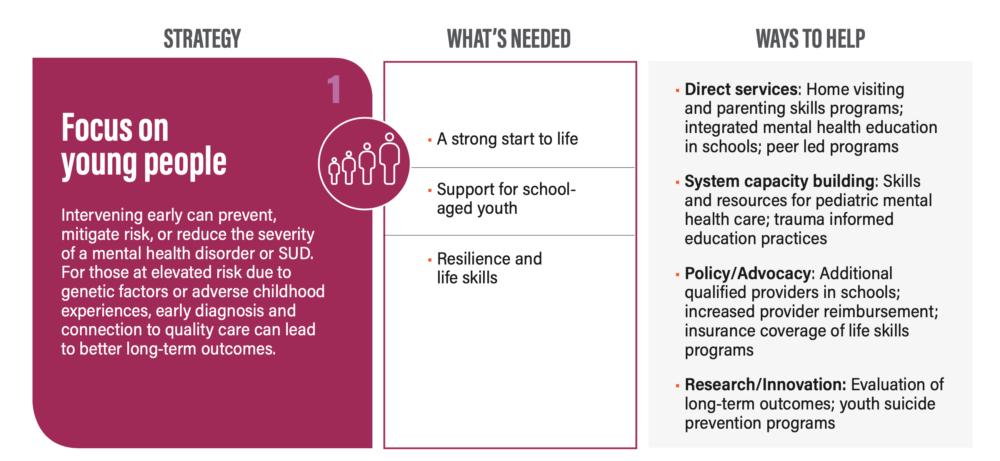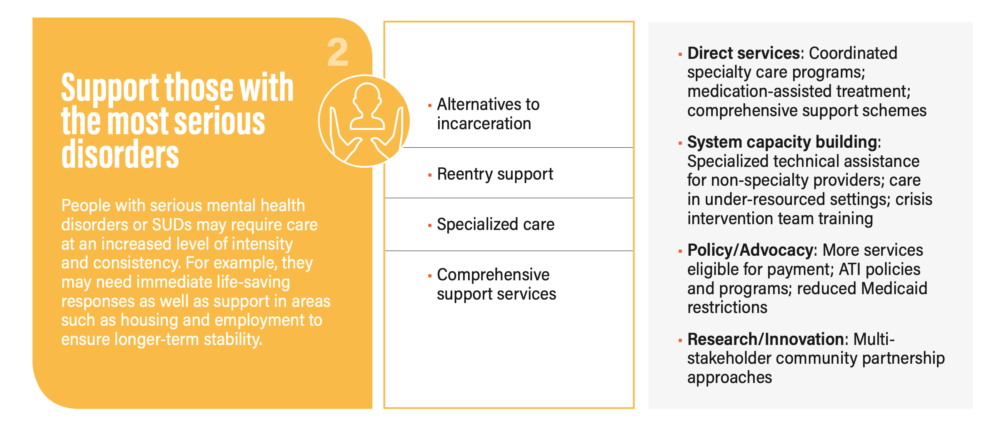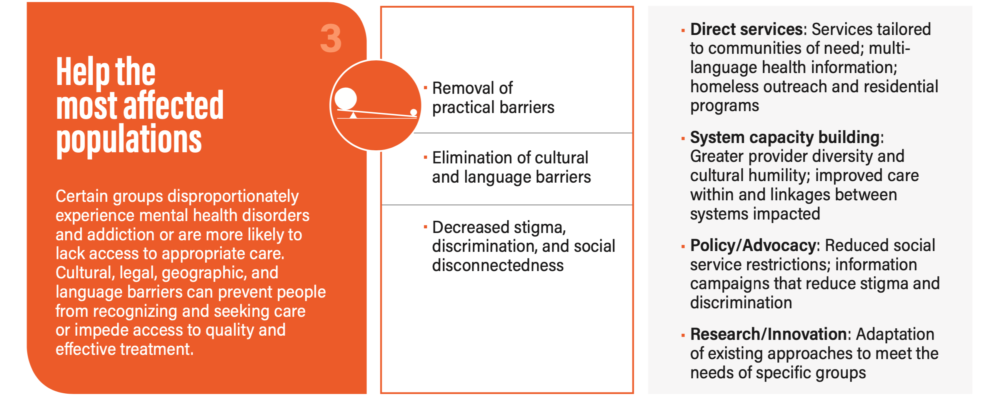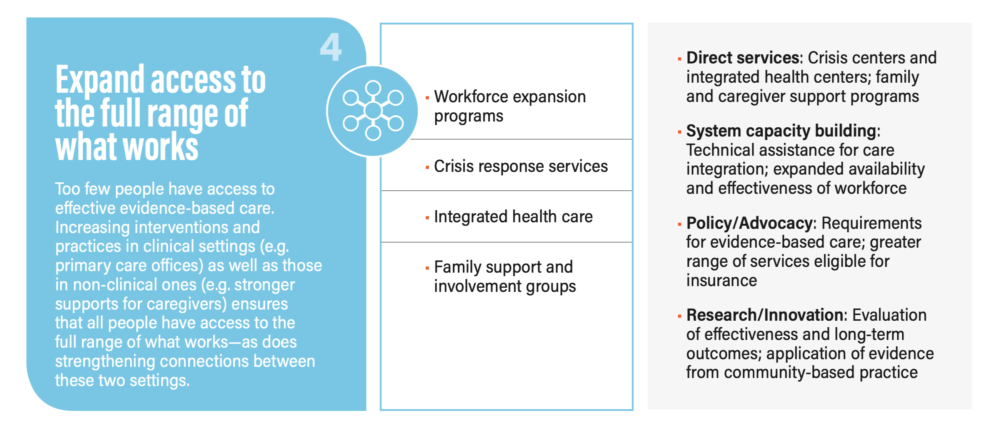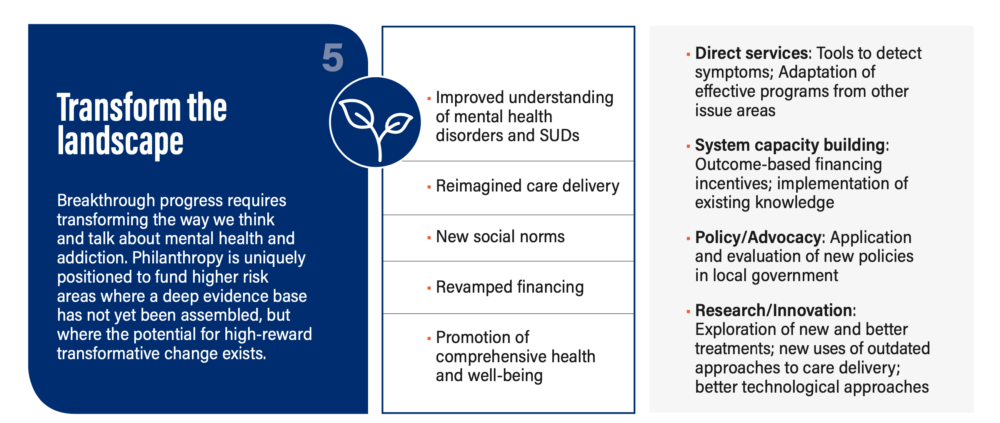5 Strategies to Address Mental Health & Addiction
Our review of the best available evidence synthesizes academic literature, research, and existing frameworks while incorporating the perspectives of donors, clinicians, and practitioners. We also engaged individuals living with mental health disorders and SUDs, along with their caregivers, and incorporated feedback from more than 50 experts in workshop and small-group settings. From this work, five strategies emerged as the most promising ways for philanthropy to better address mental health disorders and addiction in the United States. Together, they provide a comprehensive view of the areas that have both the greatest need for support and potential for impact over time.
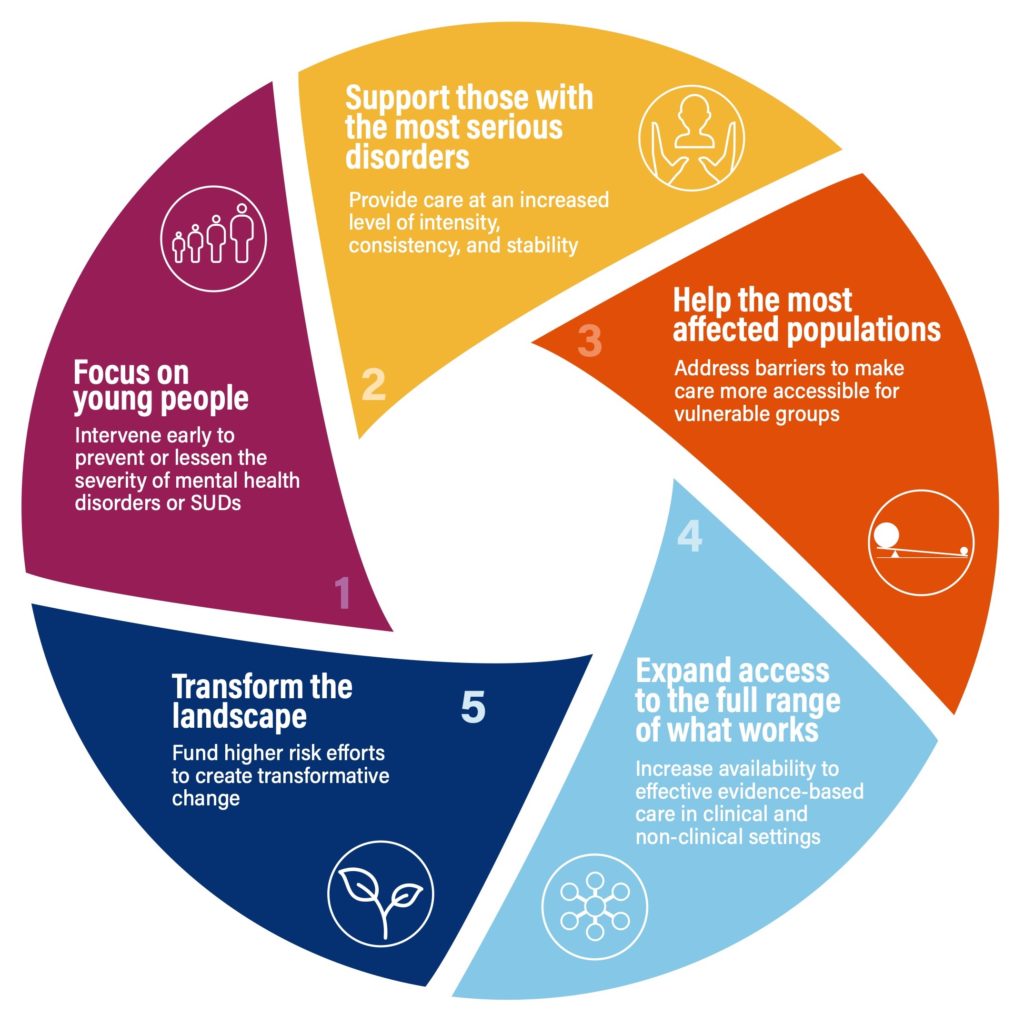
At CHIP, we see four categories of philanthropic opportunities that donors can support: direct services, system capacity building, policy and advocacy, and innovation, including research and development. Each carries its own risks, benefits and time horizons. The strategies in our guide include solutions that span all four categories. We list them here, with examples of ways to help for each strategy.
The rest of the guide provides additional details on each of the strategies in our framework. For each, we outline the case for pursuing that strategy, then provide examples of specific solutions to support. Opportunities of every size exist within each category. The most effective programs are those informed by those directly affected, those implemented with adequate support to apply evidence-based models with fidelity, and those that evaluate outcomes and impact.

